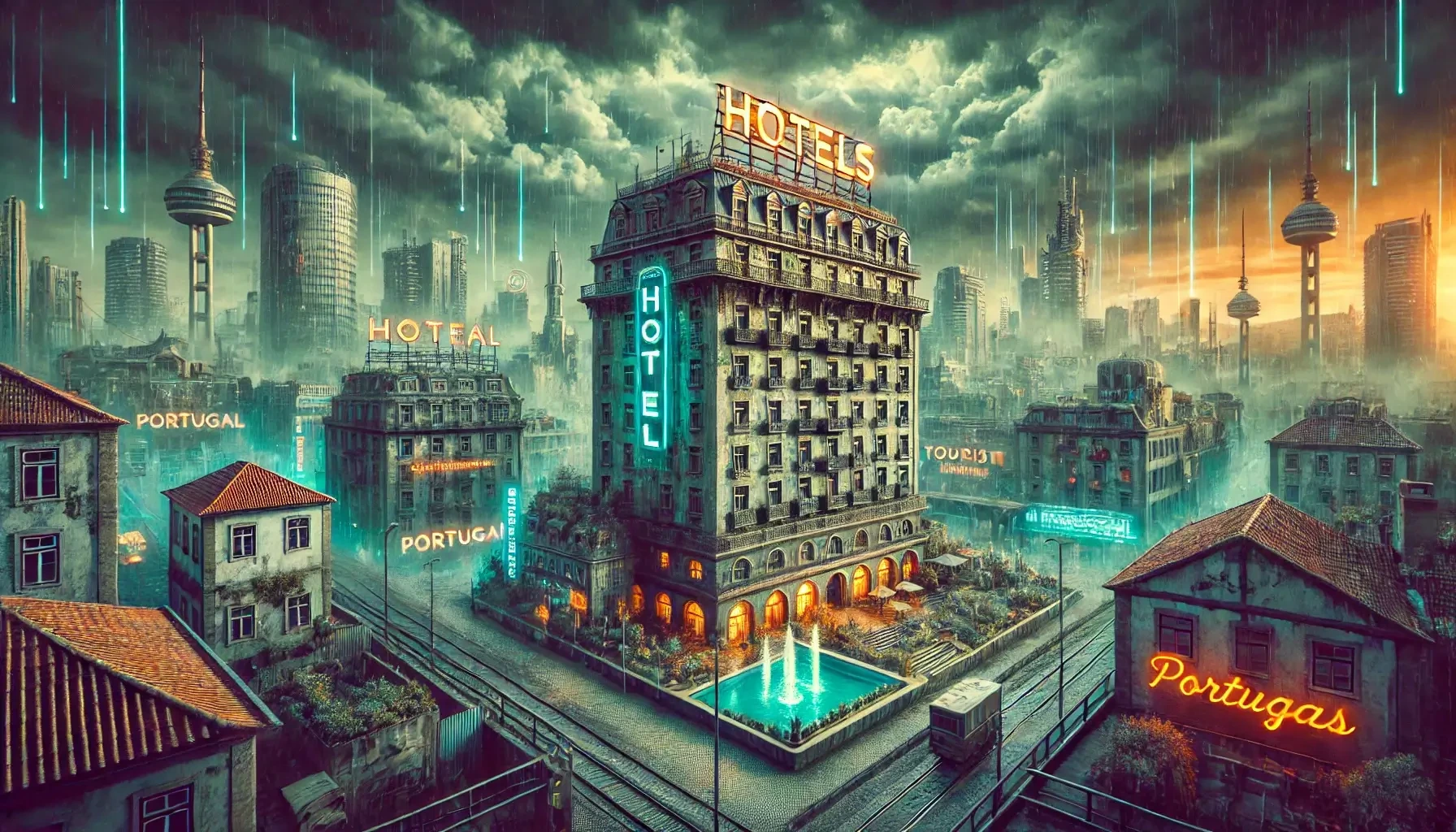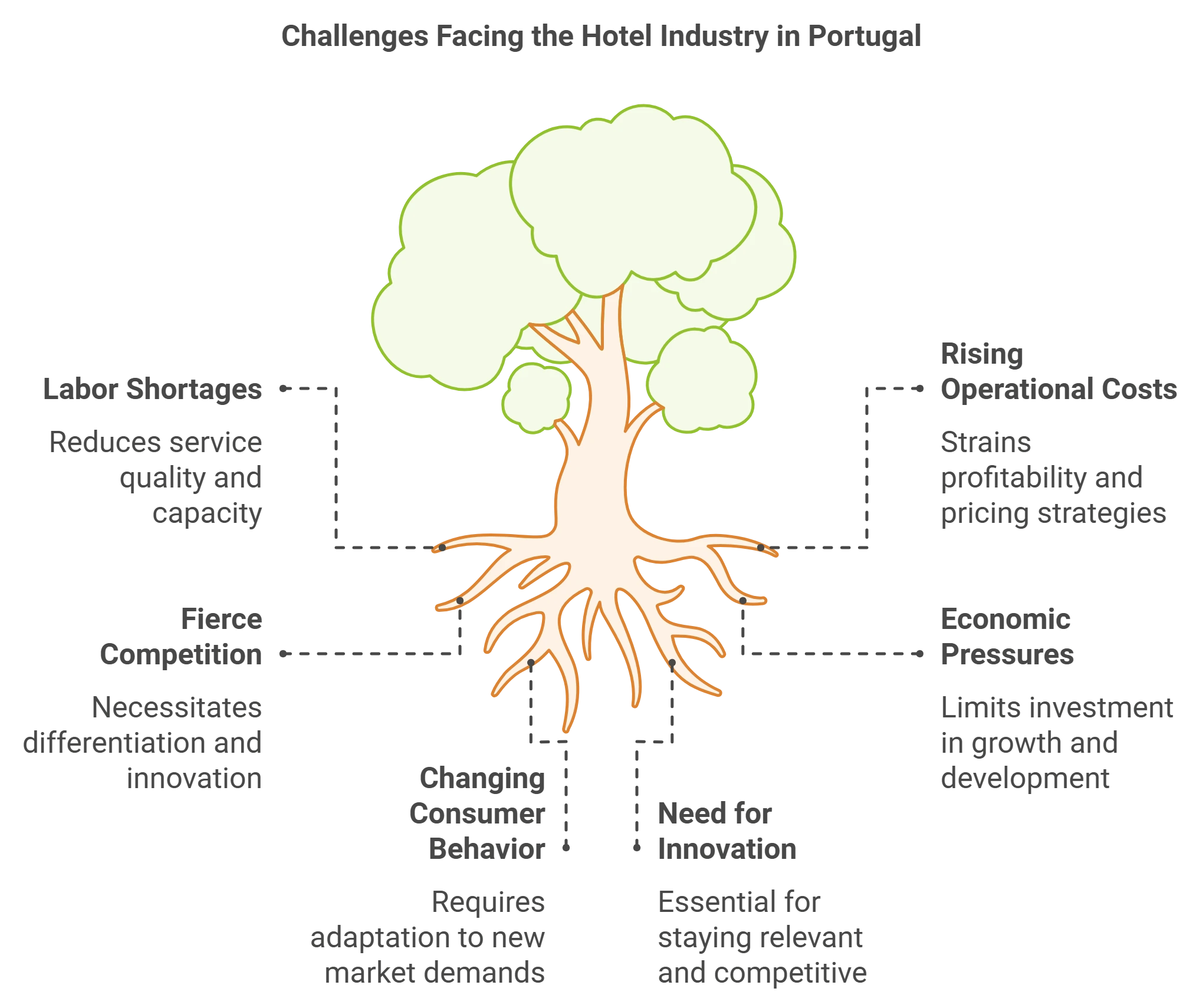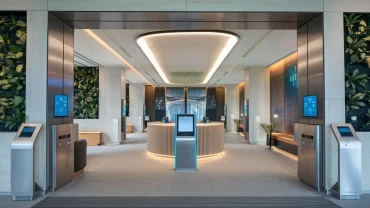Portugal’s hotel industry is a cornerstone of its thriving tourism sector, which plays a pivotal role in the nation’s economy. With its picturesque landscapes, historic cities, and world-class cuisine, Portugal continues to attract millions of visitors annually. However, the hospitality industry faces mounting pressures as it navigates a rapidly evolving market.
Hoteliers in Portugal grapple with a range of challenges that threaten their ability to maintain competitiveness and deliver exceptional guest experiences. From labour shortages and rising costs to sustainability pressures and technological demands, the industry must adapt to stay ahead. This blog explores the key obstacles faced by Portuguese hotels, starting with labour shortages and operational costs, and offers insights into how they can address these issues.

1. Labour Shortages
Overview
The hospitality sector in Portugal faces significant challenges in hiring and retaining skilled workers. This shortage has become a persistent issue, affecting service quality and overall operational efficiency.
Subsections
Low wages and long hours deterring potential employees
The demanding nature of hospitality jobs, coupled with relatively low compensation, makes it difficult to attract and retain staff.
Seasonal instability in job opportunities
Portugal’s strong reliance on seasonal tourism contributes to job insecurity, discouraging long-term employment in the industry.
Limited training and development programs –
A lack of robust training initiatives hinders the development of a skilled and motivated workforce.
Competition for talent from other sectors
Other industries, such as tech and retail, often lure potential workers away with better pay and working conditions.
Impact
The shortage of qualified personnel negatively impacts service quality, creating operational inefficiencies that can tarnish guest experiences and hotel reputations.

2. Rising Operational Costs
Overview
The rising costs of running a hotel in Portugal are putting pressure on profit margins and threatening the sustainability of operations.
Subsections
Real estate pressures in tourist-heavy locations
Property prices in prime tourist areas continue to climb, increasing the financial burden on hotel owners.
Increasing energy and utility bills
Hotels face escalating energy costs, particularly as they work to meet higher guest expectations and maintain operations.
Inefficiencies driving revenue losses
Outdated processes and systems lead to unnecessary expenditure, further squeezing profitability.
Sustainability-related investments as added costs
Efforts to implement eco-friendly practices often require significant upfront investments, adding to financial strain.
Impact
Rising operational costs limit the ability of hotels to reinvest in guest services, staff development, and infrastructure upgrades, ultimately affecting the quality of the guest experience and the competitiveness of the industry.

3. Intense Competition
Overview
The hospitality sector in Portugal faces an increasingly competitive landscape as new players and shifting market dynamics disrupt the industry. Hotels must find innovative ways to stand out in a saturated market.
Subsections
Impact of platforms like Airbnb on the market share
The rise of alternative accommodations has reshaped the travel industry, offering travelers more budget-friendly and flexible options.
Global competition from other attractive tourist destinations
Portugal competes with other European hotspots, such as Spain and Italy, as well as emerging destinations in Asia and South America, for a share of global tourism.
Shifting guest preferences toward unique and personalized experiences
Today’s travelers seek more than just a place to stay—they value distinctive experiences and tailor-made services, which puts pressure on hotels to innovate.
Strategies
To remain competitive, Portuguese hotels must emphasize differentiation and focus on providing added value to guests. This could involve offering unique local experiences, superior customer service, or exclusive amenities that go beyond the ordinary.

4. Technological Adaptation
Overview
Technology presents both challenges and opportunities for the hotel industry in Portugal. While digital transformation can streamline operations and enhance the guest experience, implementing new technologies often comes with hurdles.
Subsections
Investments in advanced systems and software
High upfront costs and ongoing maintenance of cutting-edge technologies, such as property management systems (PMS) and customer relationship management (CRM) tools, can strain budgets.
Difficulty in analysing multi-platform data
Integrating and interpreting data from various systems and channels remains a challenge, making it harder to optimize decision-making.
Maintaining balance between automation and personalized service
Guests value efficiency but still expect a human touch, requiring hotels to strike a delicate balance.
Keeping pace with rapid technological changes
The fast evolution of technology demands constant upgrades, which can be resource-intensive.
Solutions
By leveraging technology strategically, hotels can enhance operational efficiency and foster deeper guest engagement. Tools like AI-driven analytics and chatbots can streamline processes, while personalized digital touchpoints can create a memorable guest journey.

5. Sustainability Pressures
Overview
There is growing demand for eco-conscious practices in the hospitality industry, driven by both regulatory requirements and evolving guest expectations.
Subsections
Waste management and renewable energy adoption
Hotels are expected to implement effective waste reduction strategies and transition to renewable energy sources, such as solar or wind power.
Supporting local communities and sourcing sustainably
Prioritizing local suppliers and investing in community-driven projects can enhance a hotel’s reputation while contributing to regional development.
Guest expectations for green initiatives
Travelers increasingly prefer accommodations with visible and genuine sustainability practices, such as eco-certifications or carbon-offset programs.
Challenges
Balancing the costs of sustainability initiatives with operational demands is a significant hurdle. While green investments can lead to long-term savings, the initial financial burden often deters implementation.

6. Economic Uncertainties
Overview
The hotel industry in Portugal is highly sensitive to economic fluctuations, making financial stability and planning increasingly challenging.
Subsections
Inflation and rising interest rates affecting operations and expansion
Higher operational costs and steeper borrowing rates put strain on profitability and limit investments in growth opportunities.
Volatile consumer spending habits
Economic instability can lead to reduced discretionary spending, directly impacting travel budgets and hotel bookings.
Global travel market uncertainties and their impact
External factors such as geopolitical tensions, fluctuating exchange rates, and unpredictable global events can disrupt the influx of international tourists.
Impact
These economic challenges make it difficult for hoteliers to maintain financial predictability and stabilize revenues, necessitating robust risk management strategies.

7. Changing Consumer Behaviour
Overview
Adapting to shifting consumer expectations is critical for Portuguese hotels to stay relevant in an ever-changing market.
Subsections
Rising demand for personalized and health-focused experiences
Guests increasingly prioritize wellness, sustainability, and bespoke services that cater to their individual preferences.
Increasing adoption of digital and contactless services
Digital check-ins, mobile room keys, and seamless online interactions are now expected as standard offerings.
Catering to diverse leisure and business traveler needs
Hotels must balance the preferences of both leisure travelers seeking relaxation and business clients requiring functional, tech-savvy environments.
Solutions
Continuous innovation and a guest-centric approach are crucial. By leveraging data analytics, anticipating trends, and personalizing services, hotels can meet the evolving demands of their clientele.

Conclusion
The hotel industry in Portugal faces a complex web of challenges, from labour shortages and rising operational costs to fierce competition, economic pressures, and changing consumer behaviour. Each issue is interconnected, compounding the need for a cohesive strategy.
Proactively addressing these hurdles requires investments in staff development, technology adoption, and sustainability practices. Hotels must also differentiate themselves by delivering exceptional guest experiences and adapting to market dynamics.
Ultimately, success in this competitive environment hinges on a commitment to innovation and adaptability. While the road ahead may be fraught with obstacles, Portuguese hoteliers have the resilience and creativity to thrive in a rapidly evolving landscape. The future of the industry lies in balancing tradition with modernity, ensuring it remains a cornerstone of Portugal’s tourism sector.
FAQ´s
1. What are the main challenges faced by hotels in Portugal?
Portuguese hotels face significant challenges, including labour shortages, rising operational costs, intense competition, adapting to technology, sustainability pressures, economic uncertainties, and changing consumer behaviour. Each of these factors requires innovative solutions and a focus on efficiency to remain competitive.
2. How do labor shortages impact Portugal’s hotel industry?
Labor shortages lead to reduced service quality, operational inefficiencies, and a struggle to meet guest expectations. The issues stem from low wages, long hours, seasonal employment, and competition from other industries.
3. Why are operational costs increasing for Portuguese hotels?
Operational costs are rising due to factors such as high real estate prices in tourist-heavy locations, escalating energy bills, inefficiencies in outdated systems, and the expenses of adopting sustainability practices.
4. How is technological adaptation challenging for hotels?
Integrating advanced technologies like property management systems and AI-driven tools can be costly and resource-intensive. Additionally, balancing automation with personalized guest services and keeping up with rapid tech changes adds complexity.
5. Why is sustainability crucial for Portugal’s hotel industry?
Sustainability is essential as guests increasingly demand eco-friendly operations. Hotels must adopt waste management practices, renewable energy, and local sourcing while balancing these efforts with operational costs.





Comment (0)